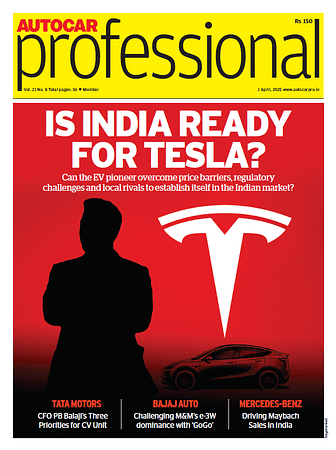Hala Mobility Partners with iGowise to Deploy 2,000 Electric Trikes for Last-Mile Delivery
Made-in-India electric trikes offer increased cargo capacity and stability while reducing costs for logistics companies across Hyderabad and Bangalore.
Hala Mobility, an EV-as-a-service platform, has announced a partnership with iGowise Mobility to deploy 2,000 high-speed electric trikes for last-mile delivery operations in cities including Hyderabad and Bangalore. The partnership aims to address inefficiencies in last-mile logistics through purpose-built, anti-topple electric vehicles manufactured in India.
Under the agreement, iGowise will supply its BeiGo electric pickup trikes, which feature greater cargo capacity and stability compared to traditional two-wheelers and auto-rickshaws. The vehicles will be deployed across various sectors including e-commerce, perishable goods delivery, and quick commerce.
"The biggest challenge in last-mile logistics is balancing speed, cost-efficiency, and rider comfort," said Srikanth Reddy, CEO of Hala Mobility. "With iGo's innovative BeiGo electric trike, we are introducing a solution that makes electric mobility not just sustainable but also operationally superior."
Sravan Kumar Appana, CEO and co-founder of iGowise Mobility, stated that their vehicles aim to reduce emissions while enhancing safety and comfort for riders, along with providing cost savings for logistics partners.
Hala Mobility recently raised INR 51 crore and plans to deploy 10,000 electric vehicles by December 2025 as part of its effort to electrify India's logistics sector. The company offers electric vehicles through rent, lease, or subscription models, while also providing integrated services including battery swapping and fleet analytics.
The partnership comes as India works toward its target of having 80 million electric vehicles on roads by 2030. The electric mobility sector has seen growing interest as businesses seek to reduce operational costs and meet sustainability requirements, while the government continues to promote cleaner transportation alternatives through various incentive programs.
Industry analysts note that purpose-built electric vehicles for specific commercial applications represent a growing segment within India's EV market, with last-mile delivery being a particularly suitable use case due to predictable routes and the ability to establish fixed charging or battery-swapping infrastructure.
RELATED ARTICLES
“Tax the Emissions, Not the Engine”: A Pragmatic Pitch for India’s Auto Sector from Toyota Kirloskar’s Vikram Gulati
Toyota Kirloskar’s Vikram Gulati makes a case for outcome-based taxation to simplify India’s mobility transition and ali...
“Software Is India’s EV Superpower”: R Velusamy on Building the Next-Gen Mobility Ecosystem
At the Future Powertrain Conclave, Mahindra’s R&D head makes a strong case for why the future of mobility is software-de...
Exclusive: Tata AutoComp Eyes Aggressive Inorganic Growth as Global Expansion Accelerates
The company is in talks with several potential partners for more acquisitions in the future.






 By Angitha Suresh
By Angitha Suresh
 06 Mar 2025
06 Mar 2025
 3772 Views
3772 Views





 Ketan Thakkar
Ketan Thakkar




